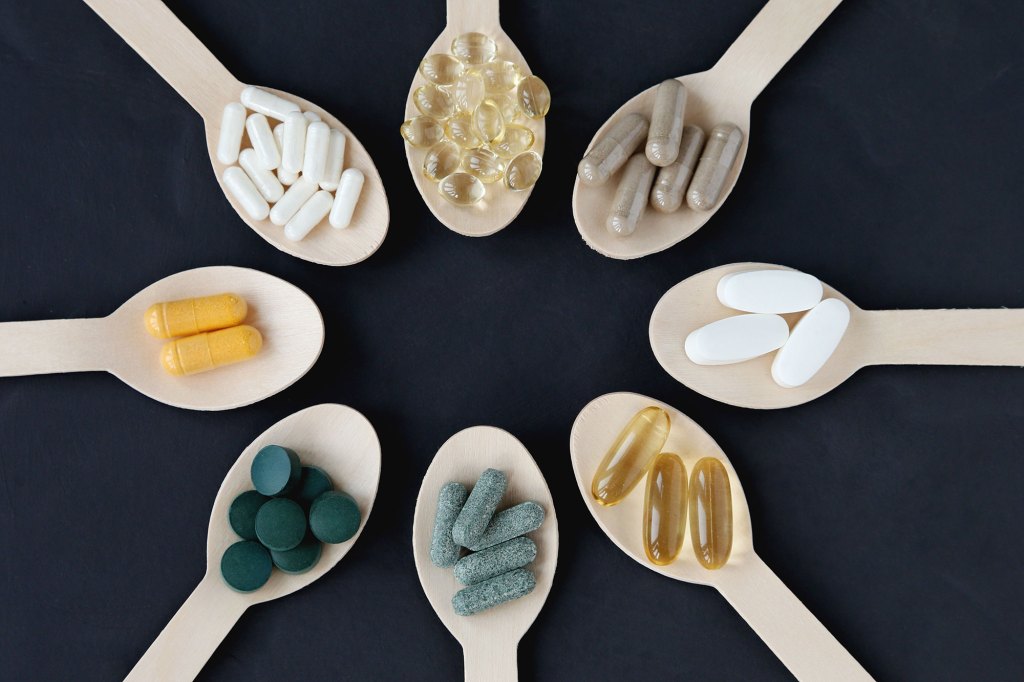How to stay safe with herbal supplements and their side effects
While herbal supplements are extremely popular today, they may not be right for everyone.
And there are caveats attached to them from doctors and nutritionists.
Attractively packaged and promising a world of health benefits, many of the herbal supplements available on the market are extremely potent, say doctors and nutritionists — and should be taken with care and medical advice.
Americans spend $35 billion a year on herbal supplements, vitamins and minerals, according to Preventative Medicine Reports.
A cautionary case in point: Lori McClintock, 61, wife of California Republican Rep. Tom McClintock, died back in December after suffering “adverse effects” from consuming the white mulberry leaf herbal supplement, a Sacramento County coroner’s report found.
The specific cause of death was listed as “dehydration due to gastroenteritis due to adverse effects of white mulberry leaf ingestion,” according to reports.
Lori McClintock “was found unresponsive in her locked residence by her husband” — and the day prior to her death, “she had complaints of an upset stomach,” the coroner’s report said.
There were no suspicious circumstances found.
People “commonly use white mulberry for diabetes,” as WebMd.com has pointed out.
They also say it is used for high cholesterol and high blood pressure, the common cold and many other conditions, “but there is no good scientific evidence to support these uses.”
Medical professionals weighed in on whether people should take over-the-counter herbal remedies and supplements — and if they do, what precautions they should take.
“Herbal supplements don’t have a lot of research to back them up,” registered dietitian and personal trainer Jenny Champion, of Red Bank, New Jersey, told Fox News Digital via email.
“If you’re putting something into your body on a regular basis and at moderate to higher doses, having solid research supporting its health claims is a must,” she added.
“Always talk to your doctor about herbal supplements before trying them.”
Nothing that “everything you eat or drink” gets processed by “your body’s filter — your liver,” she said that if you’re “constantly overloading it with supplements,” you could actually do more harm to your body than good.
Champion also said that herbs can interfere with certain medications by “increasing or decreasing your prescription’s efficacy.”
Either way, she continued, “the results can be deadly. Always talk to your doctor about herbal supplements before trying them.”

Dr. Taylor Arnold is a registered dietitian and nutritionist in Gilbert, Arizona, who shares information on his website, GrowingIntuitiveEaters.com.
She told Fox News Digital by email that when considering supplements, it’s best to “use a reliable brand of that conducts third party testing and adheres to good manufacturing practices (called GMPs).”
She continued, “Studies examining the purity of herbal supplements frequently find that they are mislabeled or contain substances not on the label.”
Recommending that people “always talk with your doctor if you are taking any herbal supplements,” Arnold noted that “many supplements interfere with medications or are contraindicated in certain medical conditions.”
Cautioning that there is “very limited safety data about herbal supplements in pregnancy and in children,” she advised people to “use extra caution in this population — or just avoid altogether.”
She added, “The placebo effect is very powerful and applies to everyone. This likely plays a role in many supplements — not just herbal.”
Read the full article Here


